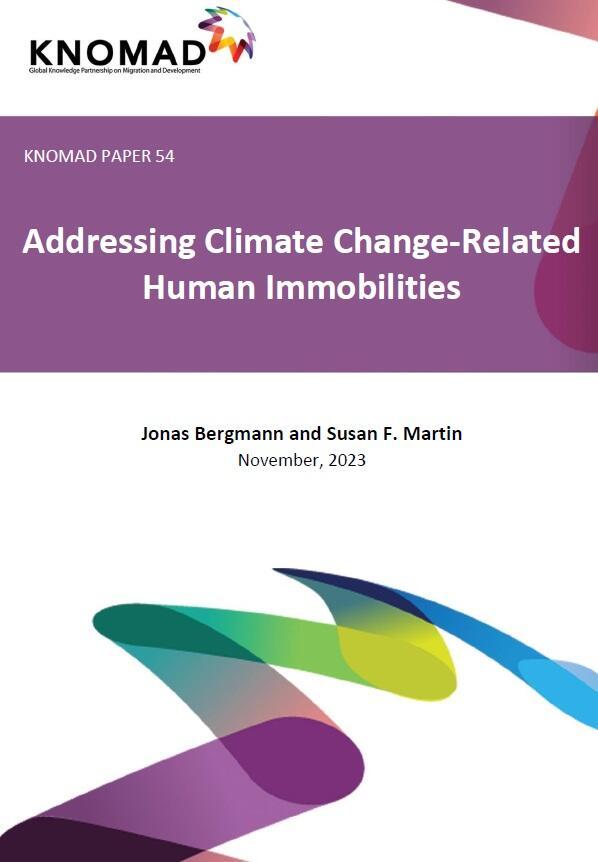
Addressing Climate Change-Related Human Immobilities
A significant share of people in areas strongly affected by climate impacts decide to, or are forced, to stay. Conceptually and empirically, such “immobilities” relate to both structural factors, such as state action and policies, and individual factors, such as people’s capabilities and aspirations to move or stay. Robust evidence demonstrates that the climate crisis is increasingly influencing such (im)mobility processes: Climate impacts do not only drive displacement, but they also reduce movement in a significant number of cases. As climate impacts worsen, models suggest that future involuntary entrapment will likely be large both internally and internationally. Simultaneously, studies show that staying in threatened areas can entail multilayered impacts on people’s well-being which require dedicated attention by planners and policymakers. Action is needed to respect and support people’s right to stay; to guarantee assistance for staying in dignity without immobilizing people; to fulfil the right to leave where desired, without shifting responsibilities to migrants and destination communities; to improve data; and lastly, to support research on the drivers and consequences of immobilities.

